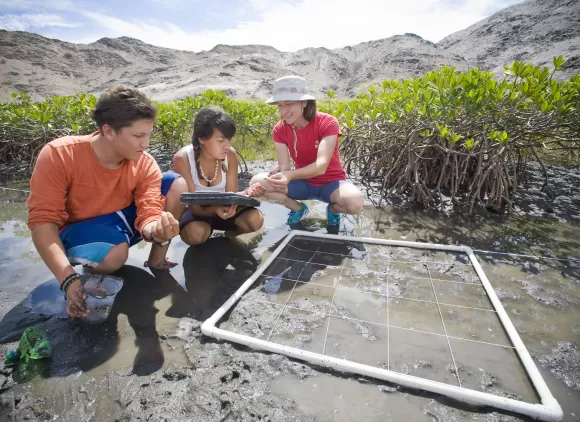What does the program offer?
An REU Site typically involves a group of around 10 students who work on related research projects at a host institution based in the United States or sometimes at an international location. At each REU Site, students work closely with faculty and other senior researchers to:
- Conduct authentic research.
- Receive mentoring.
- Build their knowledge and research skills.
- Learn about educational and career pathways in STEM.
Through an REU Supplement (supplemental funding), faculty or other investigators who hold NSF research grants might also be able to support one or more students to conduct research related to the investigator's NSF-funded research project.
Are you interested in other research opportunities outside the REU program? Explore NSF's Information for Undergraduates page.
What kind of support is offered?
REU participants receive competitive stipends and in many cases assistance with housing, meals and travel.
Who is eligible to apply?
Undergraduates (college and university students) pursuing an associate or bachelor's degree and who are U.S. citizens, permanent residents or U.S. nationals are eligible to apply. Individual REU opportunities may establish additional criteria that further restrict eligibility.
How do I find an opportunity?
To find existing REU Sites, visit the Directory of REU Sites. You can search by research area, location and keyword. Consult STEM faculty at your home college or university about the availability of REU Supplement opportunities.
You can also find many REU opportunities on the NSF Education and Training Application (ETAP) website. However, not all REU opportunities are advertised there, so you should also consult the Directory of REU Sites. For opportunities that are available on the ETAP website, you can prepare and submit your application there.
How and when do I apply?
How to apply
Students must apply directly to REU Sites and REU Supplement opportunities. NSF is not involved in the selection of students or the operation of the REU activities. The institutions and investigators that receive the NSF grants are responsible for managing their REU activities.
Students must consult each REU Site or REU Supplement opportunity directly for information and application instructions:
- For REU Sites: Find websites and contact information for each REU Site in the Directory of REU Sites.
- For REU Supplements: Faculty and other investigators who have REU Supplement funding connected with their NSF research projects can provide information about how to apply for those opportunities.
Application requirements vary for different REU opportunities. Often, they require a resume, statement of interest, transcript and reference letters.
When to apply
The vast majority of REU Sites operate during the summer months and have application deadlines during the January–March timeframe. Some REU Sites operate at other times, including the regular academic year. REU Supplements support student research during the academic year and/or the summer.

